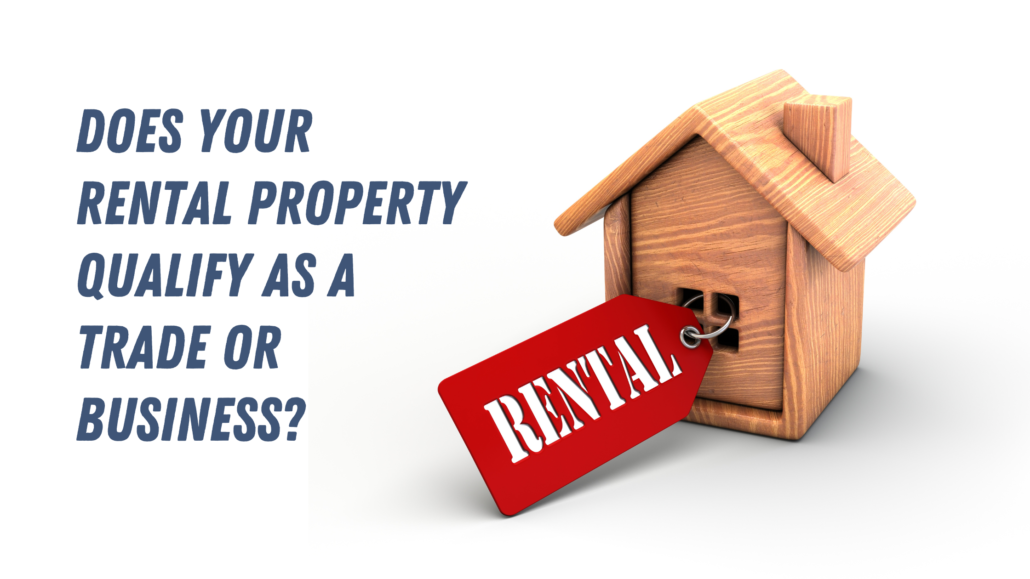
The difference between owning an investment property and a rental real estate business may not seem big, but when it comes to the taxes you pay, it can have a significant impact. Thanks to the Tax Cuts and Jobs Act, Provision 11011 Section 199A – Qualified Business Income Deduction (QBI), If your property qualifies as a trade or business, as defined in IRS Tax Code Section 162, you could notably reduce the amount of taxes you owe next time you file.
Section 199A – QBI allows millions of taxpayers who own a real estate enterprise to reduce their yearly tax bill up to 20% against the income generated from a qualified business.
The QBI deduction only applies to business income, which is the activity of a trade or business conducted “on a regular, continuous, and substantial basis” with the aim of earning a profit. To qualify, you must…
- Operate your rental business as a sole proprietor, S-corps, partnerships, or LLCs.
- Have taxable income for the year from all sources after deductions below $170,050 filing single or $340,100 married filing jointly (these numbers are for 2022 and are adjusted each year for inflation; for 2021 the thresholds were $164,900/$329,800).
Safe Harbor Rules for Qualification of Rental Property
In 2019, the IRS established a safe harbor for taxpayers who own one or more rental properties, which means that through law, you’re protected from a penalty when conditions are met.
According to the safe harbor rules, a rental real estate enterprise automatically qualifies and is deemed a trade or business if the pass-through business or tax payer does all of the following:
- Each rental property must maintain separate books and records (or the combined enterprise, if grouped together)
- Perform 250 hours of rental real estate services per year (“Rental services” do not have to be performed by the business owners themselves)
- Keep detailed records of the real estate services performed such as description of all services, dates, and hours of service performed as well as who performed them.
It’s important to note that taxpayers who own investment property are not able to claim the deduction and you cannot use the safe harbor if you live in the property for more than 14 days in a year, or more than 10% of the number of days during the year the property is rented.
The safe harbor rule, however, does not necessarily mean your rental activity is not a business. If your rental business activity does not meet the standards of the safe harbor, all is not lost. The business can still meet the requirements of trade or business under IRC Section 162, but it does not mean you automatically qualify.
Whether your rental activity qualifies as a trade or business can be complex and expert guidance is critical to help business owners get the full financial benefits. We’re here to help! Give us a call or contact us to schedule a free consultation.


